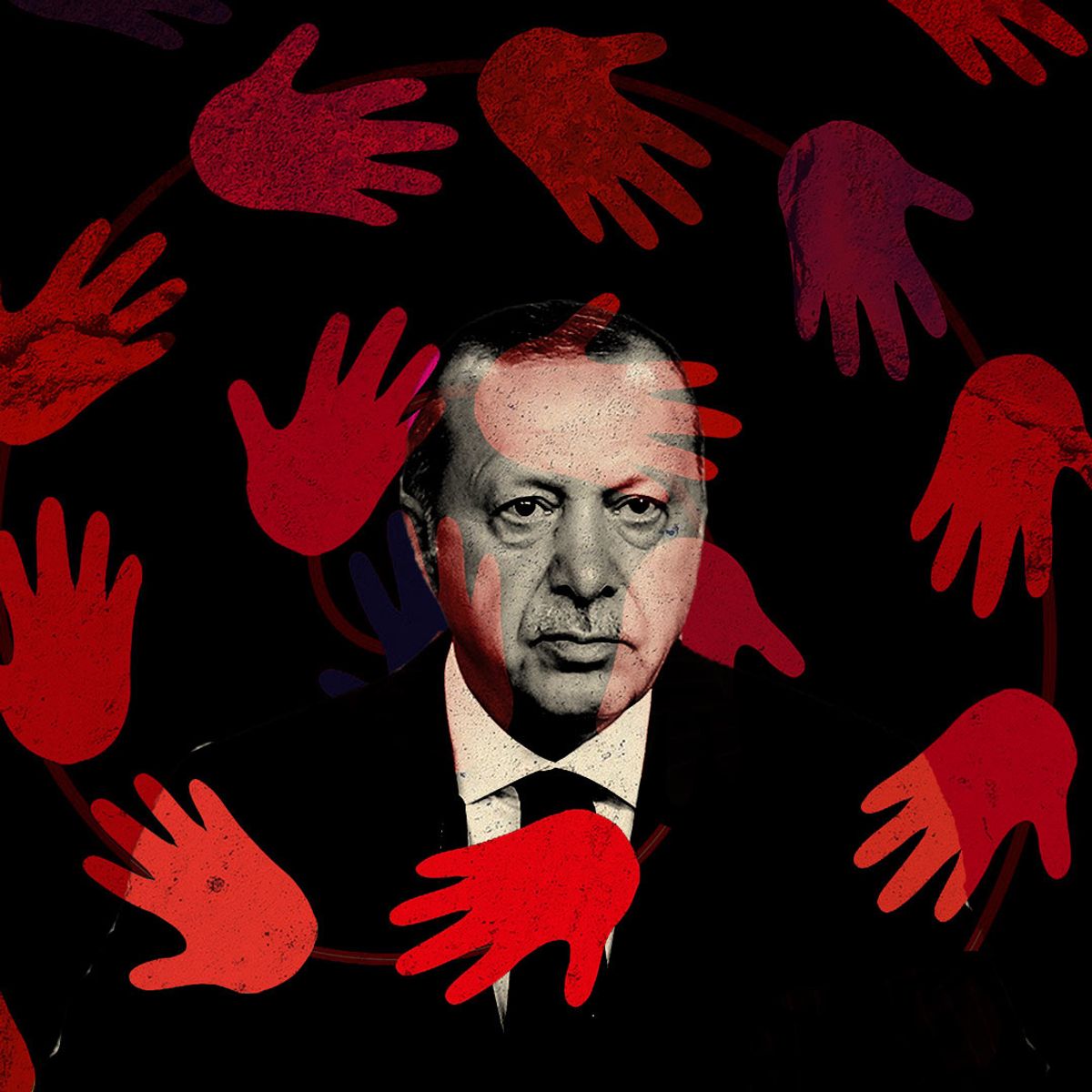Turkey suppresses social media: Turkey's president, Recep Tayyip Erdogan, likes to dominate the conversation. In power since 2003, he and his Justice and Development party have succeeded in tightening their grip on the media in recent years. More than 90 percent of the country's traditional media outlets are now controlled by companies with ties to the government. Turkey has also become one of the world's leading jailers of journalists. This media-control mission now extends into cyberspace. Since nationwide protests in 2013 and a coup attempt in 2016 threatened his hold on power, Erdogan has unleashed an army of trolls to attack critics and journalists. This week, Turkey's parliament passed legislation that forces social media platforms like Facebook, YouTube, and Twitter to remove content the government doesn't like. To enforce the law, which takes effect on October 1, these companies are required to open offices, and store user data, inside Turkey. Failure to comply could lead to bandwidth cuts of up to 95 percent that slow their speed and make them unusable inside Turkey's borders.
Jordan's messy elections: After Jordan's King Abdullah II issued a royal decree calling for parliamentary elections, the polls were scheduled for November 10. Although the Jordanian parliament has legislative powers, many see it as a tokenistic body made up of business elites who play a secondary role to the country's powerful monarchy. (The King has the constitutional mandate to appoint governments and pass legislation.) Indeed, political chaos is currently the order of the day in Jordan, where the main opposition party, the Jordanian branch of the Egyptian-based Muslim Brotherhood, was recently dissolved by Jordan's top court on the basis that the group had failed to "rectify its legal status." (Egypt has dubbed the group a terrorist organization.) The Muslim Brotherhood, meanwhile, has said it will appeal the verdict. Whatever the outcome, Jordan's new parliament will be charged with the difficult task of steering the country's post-pandemic economic recovery as unemployment soars and GDP is projected to contract by at least 3.5 percent this year.
China targets... the Vatican: Amid ongoing negotiations between Beijing and the Vatican to try and resolve a host of issues, state-sponsored Chinese groups have hacked the Holy See's digital infrastructure, according to a private cybersecurity group. The hacks, which occurred over the past three months, were launched as the Vatican and Beijing prepare to meet in September to discuss the Catholic Church's operations in China, long a point of contention between the two sides. Beijing and the Vatican have been at loggerheads for years, dating as far back as the 1950s when the Holy See officially recognized Taiwan. But the relationship has grown increasingly tense recently because of freedom of religion restrictions in China — including the establishment of detention camps for Muslim Uighurs and other minorities — as well as China's security crackdown in Hong Kong, which the Vatican has condemned. Upcoming negotiations were meant to be a continuation of a 2018 agreement where the two sides notionally agreed to a joint process for selecting bishop candidates to the official church in China. We're watching to see how this revelation affects what was supposed to be the start of some sort of détente.






